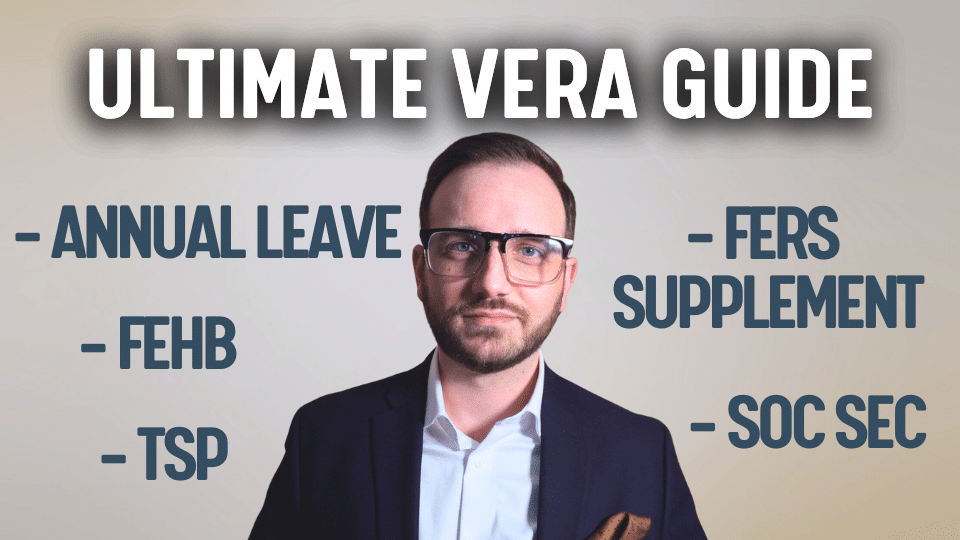Prepare Your Family for the Worst
Usually when we talk about longevity, we’re discussing having enough money so your portfolio will outlast you, keeping you from poverty late in life. Today’s discussion is flipping the frame on this: what if you run out of time while your family still needs your income?
But this is still such an important part of your retirement planning that we knew we had to make a dedicated piece to it.
One of the worst things that can happen to a family is being completely caught off guard by a death of a family member.
Before you think “We’re still young, we just started retirement”, read on to learn why you want to get ahead of these challenges.
It’s hard enough for a surviving family member to deal with the emotional burden of a death, but it can be made even worse if they’re also left with a financial and planning burden as well.
We work with federal employees across America, and one of the things we hear as most important to them is that they want to make sure they don’t become a burden to their family.
This piece will cover some actions you can be taking right now to help safeguard your retirement from federal service.
Protection When It Matters
There are certain legal documents that you need to have in place well ahead of anything bad happening. Many of these apply regardless of what stage you are in life. A few examples are things like Wills, POA, advanced medical directives, health proxies, etc.
But you also want to consider whether a trust might be appropriate for your family as well. We won’t get into the reasons for when trusts are appropriate, but just know that your analysis should include a comparison of with and without a trust.
On the other side of protection are your insurance policies. As a fed, you get a pension and Social Security. If you were to die, as much as half of your FERS pension will disappear, as will one of your family’s Social Security. The survivor keeps the bigger Social Security—yours or theirs—and the other goes away.
If it happens earlier in your retirement, will your family be okay financially without that extra cashflow? If the models show that they won’t, or that lifestyle changes may be required, then you can consider insuring against that kind of risk.
There’s also the matter of taking care of your health in the long run. Folks, Long Term Care is expensive, especially if you need higher care. If you haven’t saved enough, this can be a huge burden to your family so make sure you have a scenario built into your plan that helps you identify how you’ll address this need.
Digital Access
Once you have your documents in order, have you made sure that all your family members can find them in an emergency? Often, this means having them electronically stored.
For families who work with us, we give them a private and encrypted Cloud-based portal where they can keep their documents scanned so that if anything happens, their family is able to retrieve them or even contact us for help if they need to.
But the digital access goes beyond just your legal documents. Do they have the ability to access your email accounts or social media? Do they have copies of your identification?
If you have insurance policies, do they have all that information readily available and in a usable fashion? All important factors to keep in mind.
Check Beneficiaries
Setting up your accounts correctly makes it easier for your family. For retirement accounts, it’s easy to check your beneficiaries on all accounts. However, assets that do not have a beneficiary or are not in trust will go to probate.
The process of settling an estate in probate and getting the assets to the right people can be timely, it can be expensive, and it’s the last thing you want your family to deal with.
Retirement accounts (TSP, IRA, 401Ks, 403b, etc.) generally require that you set up beneficiaries on inception, so your main job is to make sure they are still correct.
But non-retirement accounts, like individual/joint brokerage accounts and bank accounts, may also have the ability to have “Transfer on Death” (TOD) designations as well. This means it has beneficiaries just like retirement accounts and will avoid the costly probate process.
It’s important to know that, like retirement account beneficiaries, TOD designations will often supersede what’s written into a will, so make sure you to take this into consideration when planning on how to pass on your wealth.
Don’t Make Big Decisions
Two of our personal heroes won the Nobel prize for their study on behavioral economics. We’re big students of this topic at our firm, and one of the things we’ve learned over the years is that strong emotions and money decision-making don’t mix well.
When someone is overtaken by emotions, whether it’s fear of retiring, uncertainty about the markets, or grieving the loss of a loved one, those emotions will often cloud the decision-making systems of the brain.
This is completely normal and important to understand that it happens. If you can recognize yourself in a similar situation, you may be able to keep yourself from making poor decisions.
We always tell our clients to hold off on making big decisions when anxious or emotional, like selling the house after a loss or other drastic moves.
Learn to lean on the people in your lives, whether professionals or family, that can help you make sound decisions about your wealth and develop a plan that will support you moving forward.
Build the Right Team
This leads me to our next point, which is to make sure you build the right team ahead of time. Our clients often find it helpful to formulate relationships with professionals well before they have their needs.
This is why people come to work with us when they’re retired or planning retirement, but the same is true for your other professionals.
Wealthy families know that there are three main professionals they need to have in their lives related to their wealth: an accountant, financial planner, and estate attorney. Many have the first two, but seldom do families consider an attorney until they start late life planning.
Perhaps you might want to think about finding an estate attorney that you trust and can meet with every few years to review your estate goals.
At our firm, we’re encourage our clients to include us in as many conversations with their other professionals as they’d like. We have the big picture as their financial planners and often can add massive value to these conversations. And when something does happen, we’ve been able to be there for the family to help them through the entire process.
Family Love Letter
Many families we work with also choose to write a letter to their family. In essence, it’s written to impart the things they wanted to make sure their family remembered once they’re gone.
This doesn’t have to be a long letter or even very complicated, but a lot of them talk about how much they loved each of their family members, their favorite memories of them, and some encouraging words too, as this letter is generally read by them once you’re gone.
Remember, if you’re lucky, the most important part of your legacy is not financial.
I wrote a letter like this for my wife, and it was a tough letter to pull together. In fact, I had to go back to it several times because I couldn’t find the right words. And we’ve found that a lot of families really liked this idea and chosen to do something similar themselves. Where will you keep this so it’s found when they need it most?
In closing, not everything about retirement planning involves investments and dense financial modeling. Some of it involves thinking beyond the here and now, and planning ahead so that you can insulate your family from life’s biggest curveballs.



